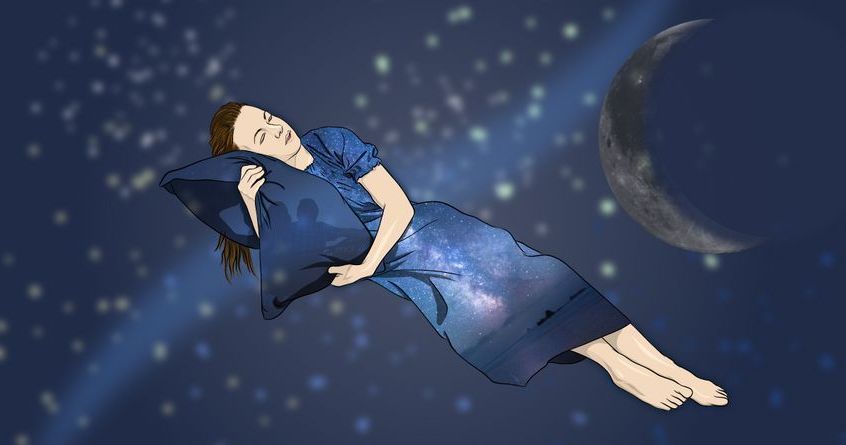We all experience particularly powerful dreams from time to time - the kind that make you bolt up in bed and ask, "What's wrong with me?!"
Despite everything we know about our bodies, dreams are still strange and mysterious to us, and they get even more puzzling when they suddenly turn intense.
Whether strong dreams or vivid nightmares are troubling you, one of these seven causes are probably to blame.
What makes us dream?
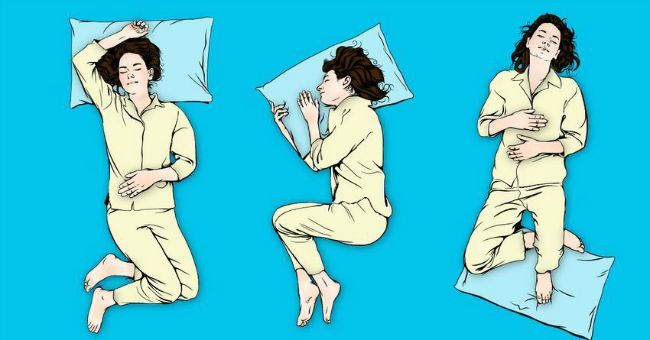
Before we dive into the list, let's review what causes our dreams in the first place.
Throughout the night, your sleeping body goes through a repeating cycle - becoming more or less awake until the morning comes.
During the most wakeful part of the night, called Rapid Eye Movement (REM) Sleep, your brain is busy processing memories and information from your daily life.
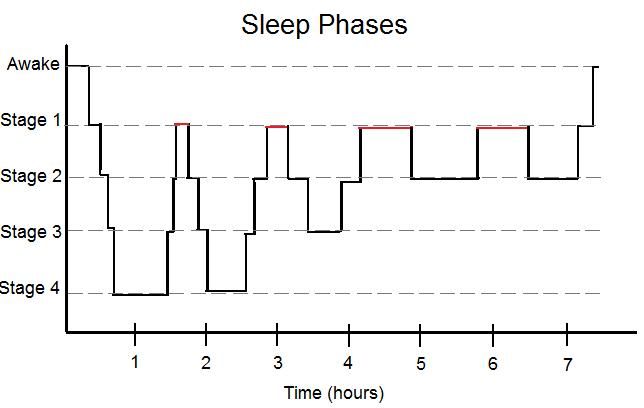
We spend about 25% of the night in REM sleep, and it's also when our busy minds create dreams.
We all dream every night, but it's easy to forget our nightly dreams when they're not intense or frightening.
While the connection between our dreams and memories is still being researched, sleep experts can say with confidence that anything affecting your REM sleep will also impact your dreams.
1. Your sleep schedule could be causing nightmares
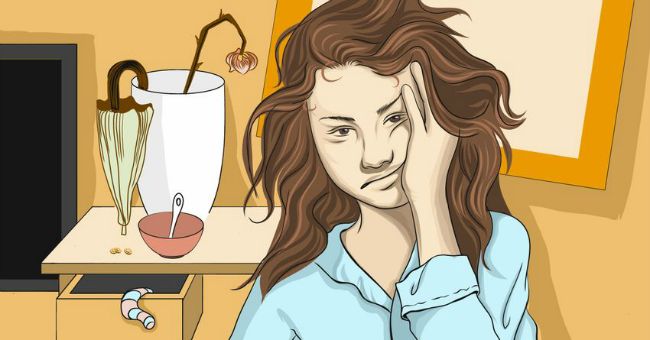
REM sleep is a crucial part of your sleep schedule, and interruptions to this schedule can seriously mess with your dreams.
A full rotation from deep sleep to REM sleep takes about 90 minutes, with the last 20 minutes spent on REM.
It takes at least four of these cycles to get a good night's sleep, which is why the National Sleep Foundation recommends at least seven hours of rest each night.
So what happens if you only get a few hours of shuteye? The next night, you go through "REM rebound," and experience more intense dreams as you catch up on REM cycles.
That means keeping a regular, generous sleep schedule will guarantee sweet dreams.
2. Spicy food can cause strange dreams
I'll admit I like to have midnight snack every now and then. But I also know from personal experience that eating late can cause nightmares.
Eating anything - but especially spicy food, dairy, and rich, "heavy" foods - speeds up your metabolism and encourages brain activity.
When you enter REM sleep with that heightened brain activity, your mind cooks up all sorts of strange imagery.
Lisa Medalie, a sleep expert with the University of Chicago Hospitals, warns to avoid eating up to three hours before bedtime.
3. Watching TV before bed can mess with your head
In my family, it was considered normal for everyone to go to sleep with the TV in their room still on.
But experts warn there are a few reasons to avoid your TV and computer screens before bed.
For one thing, the programs you just watched can mingle with your dreams in an upsetting way, according to clinical psychologist Steve Orma.
"Our dreams come from our subconscious mind," he said, "so if you expose yourself to a TV show (or even a book) that has a strong emotional component for you personally, your mind may give it more significance and focus on it more, causing it to come out in your dreams."
Too much blue light (the kind that comes from TV, computer, and phone screens) can also interfere with your body's natural sleep schedule too.
4. You might have sleep apnea
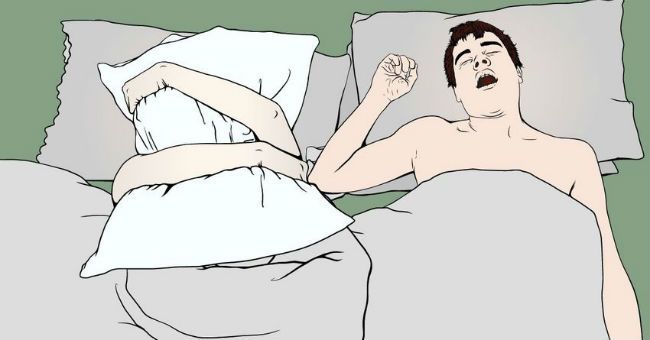
An estimated 30 million people live with this chronic sleep condition, but not all of them realize it.
Sleep apnea is caused by relaxed throat muscles, which block your airway while you sleep. It leaves you gasping for air, and patients often wake up multiple times through the night.
Sleep expert Dr. Michael Breus says that the lack of oxygen from sleep apnea "can cause disturbed dreaming with more bizarre and negative dream content."
Other signs of sleep apnea include loud snoring, waking up with a dry mouth, waking up throughout the night, and feeling tired during the day.
5. Stress and anxiety often bring bad dreams

Eliminating the stress in your life is easier said than done, but it can help curb the number of nightmares and vivid dreams you experience.
Conditions like anxiety and depression often encourage insomnia, and playing catch-up with REM sleep leads to intense dreams.
Patients with anxiety may also experience more severe bad dreams - but the same number of bad dreams as a person without anxiety.
Meditation, exercise, and talking through your nightmares can alleviate stress.
If a traumatic event in your life is causing nightmares, counseling could help you work through them.
6. Even sleeping pills can mess with your head
Although, the bad dreams brought on by sleep aids really mean the medicine is doing exactly what it's supposed to.
If you're taking a sleep aid like Melatonin or Ambien, you're probably not getting as much REM sleep as you should be.
The deep sleep these drugs provide includes intense REM cycles with extremely vivid dreams.
Once your body (and your sleep schedule) have adjusted to the medicine, your dreams should return to normal.
7. Other medicines affect your dreams too
Your brain chemistry is a sensitive thing, and a long list of common medications can change it in surprising ways.
Antidepressants like Paxil and Zoloft are known to suppress REM sleep. So does Ritalin. That means when you stop taking those medicines, you'll experience an intense REM rebound.
On the other hand, beta blockers, blood pressure medications, and smoking cessation aids are known for causing nightmares.
Alcohol and marijuana use can also play havoc with your dreams: they both suppress REM sleep, so the nights following their use are known for seriously weird dreams.
[H/T: Healthline, Psychology Today]
